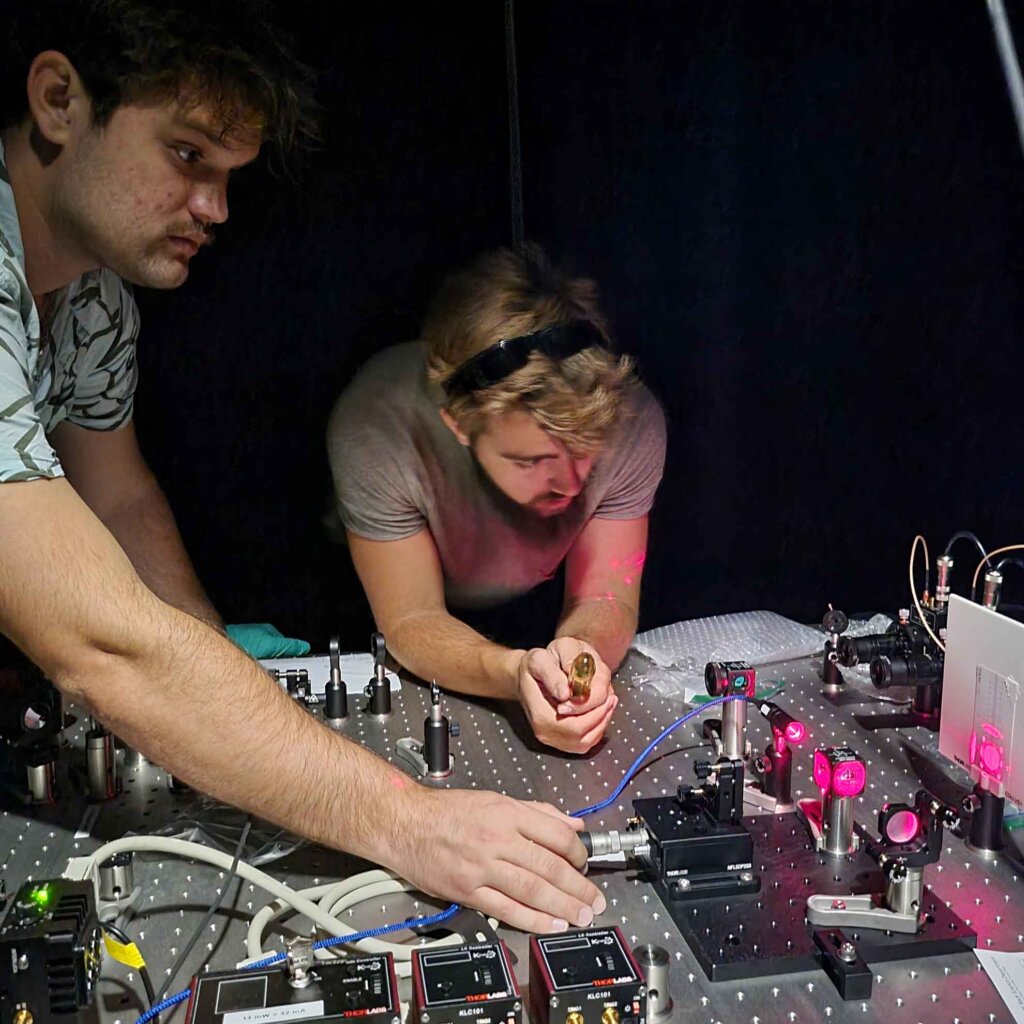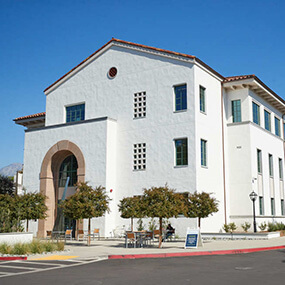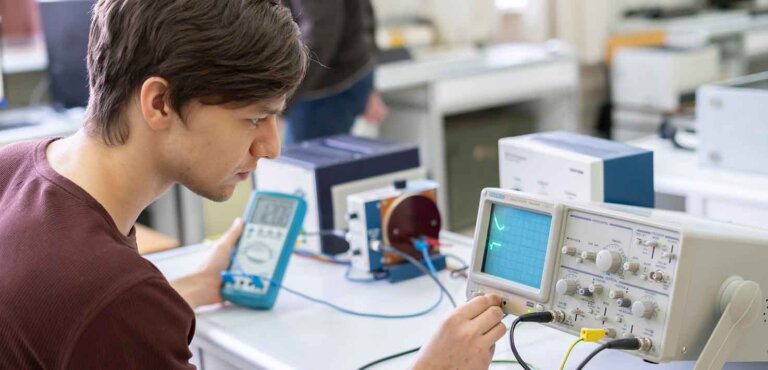Physics
Explore the fundamental principles that govern the behavior of our universe. Model physical systems in the language of physics and test them experimentally.
Flexible by design
The Physics Frontier
Our Physics program allows you to develop a set of skills in analytical and quantitative problem-solving that are applicable in fields from engineering to medicine. And the relatively modest course requirements for our Physics major allow you the chance to extend your physics education by pursuing dual majors and minors in a range of other fields.
- Build mathematical and quantitative models
- Interpret model results
- Design experiments
- Analyze experimental data
- Conduct physical research
- Communicate your findings

Physics Major Requirements
Program Overview
The Physics major teaches students how to describe and analyze physical systems by building and testing mathematical and quantitative models.

Pitzer Physics Major Requirements
Pitzer College students can view specific major requirements and learning outcomes for the Physics major in the Pitzer course catalog.

Scripps Physics Major Requirements
Scripps College students can view specific major requirements for the Physics major in the Scripps course catalog.
Physics Faculty









Hands-on learning
Physics students Braden Bouwman PZ ’25 (left) and Noah Leopold PZ ’25 (right) optimize the fringe patterns on a Michelson Interferometer in preparation for demonstration of the Deutsch-Jozsa quantum computation algorithm.

Physics Resources
Explore
We offer several resources to help you achieve your academic and research goals.

Research Opportunities
Explore more than 26 research groups across various disciplines.

Faculty Advisors
No matter where your major takes you, your faculty advisor will be there to help — every step of the way.

The Nucleus
The Nucleus, our 165,000 square-foot science building, provides plenty of space for you to complete your lab work.

Senior Thesis
Cap off your undergraduate studies by completing your senior thesis — a research-intensive project that lasts up to a year.
Physics FAQs
Learn More
Browse frequently asked questions about our Physics program.
The Physics major offers a set of principles for understanding the physical world that are applicable in fields from biology to engineering. Physics majors have gone on to careers in a range of fields, from industrial research to biophysics. The skills Physics majors develop in building mathematical and computational models are also particularly useful in finance.
Physics majors gain an understanding of the fundamental principles that govern our universe on scales from subatomic to cosmic along with the processes that unveiled them. You’ll learn how to conceptualize unfamiliar physical systems, develop quantitative and mathematical models that describe those systems, and test those models with analytical, numerical, and experimental techniques.
Course requirements for our physics major are relatively modest, giving students room to explore other fields with insights from Physics through double majors and minors. Pitzer’s degree regulations allow double majors with the approval of faculty from both field groups. Scripps allows for dual majors, which require a student to complete a single thesis incorporating insights from both majors, and double majors, which require two theses — one for each field.



